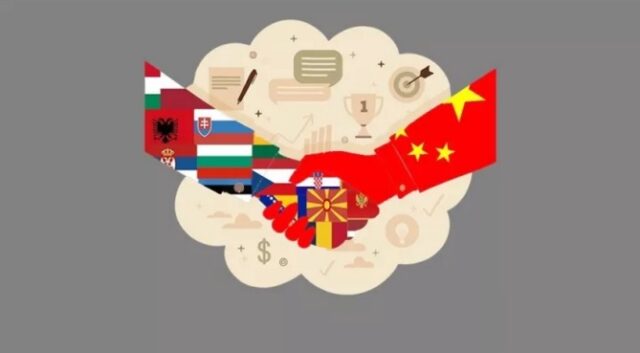Cooperation between China and Central and Eastern European Countries which is known as 16+1 but originally as 17+1 is an initiative by the Chinese Ministry of Foreign Affairs to promote business and investment relations between China, the People’s Republic of China (PRC) and 16 countries of Central and Eastern Europe (CEE, CEEC) which includes countries like Albania, Bosnia and Herzegovina, Bulgaria, Croatia, the Czech Republic, Estonia, Greece, Hungary, Latvia, Poland, Romania, Serbia, Slovakia,
Slovenia, North Macedonia and Montenegro.
The initiative was founded in 2012 in Budapest to push for the cooperation of the “17+1” (the 17 CEE countries and PRC). The 17+1 meet annually and the summits have been held in Dubrovnik (2019), Sofia (2018), Budapest (2017), Riga (2016), Suzhou (2015), Belgrade (2014), Bucharest (2013) and Warsaw (2012). The China-CEE secretariat is in Beijing, with 17 “national coordinators” in each of the partner CEE countries. The goals were to promote the Chinese Belt and Road Initiative and enhance cooperation in the fields of infrastructure, transportation and logistics, trade and investment”. These goals are enhanced through growing ties in the areas of culture, education, tourism, cultural exchanges, think tanks and NGOs.
Although the main goal of the 16+ initiative is to achieve an advanced level of political coordination and better cooperation three fields are the main priority including infrastructure, high and green technologies. This has been one of the major projects for China as its critical geopolitical project. China has developed major relations with these countries to form and emerge better markets and also to develop the region further.
Over the years, this initiative has been seen as a way to divide the European Union (EU). Chinese authorities only offer loans and not investments. EU has many times criticised the same. People to people interaction are encouraged in tourism, think tank cooperation, young leaders’ forums, and literary translations. It grants direct access to the people, thus, helping China form relations with future decision-makers.









